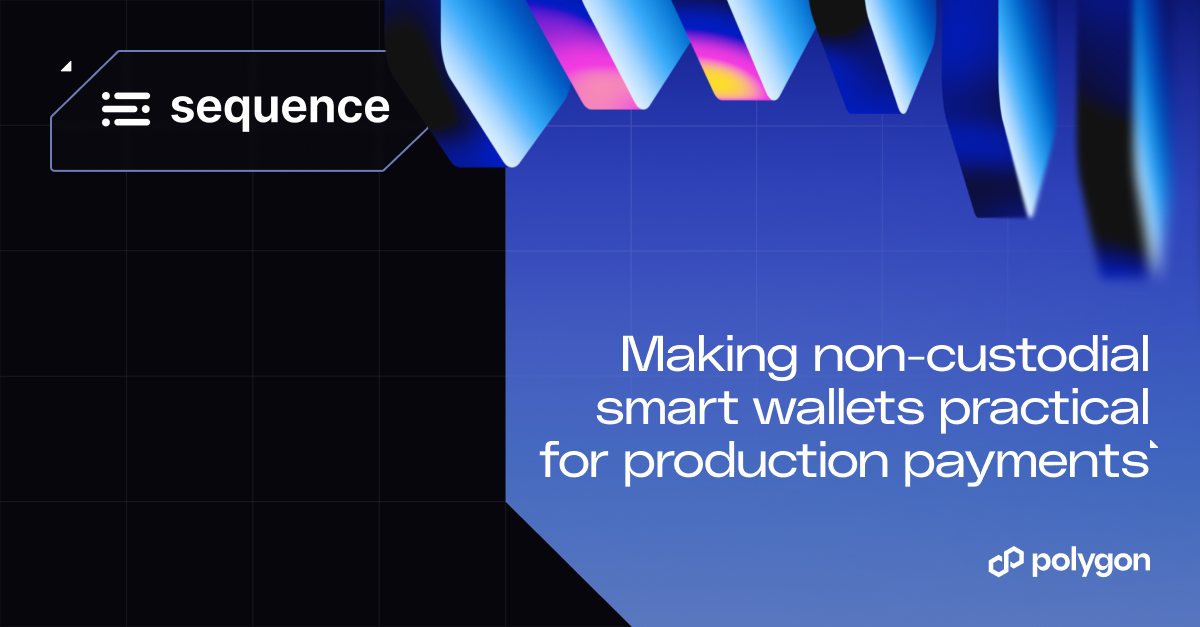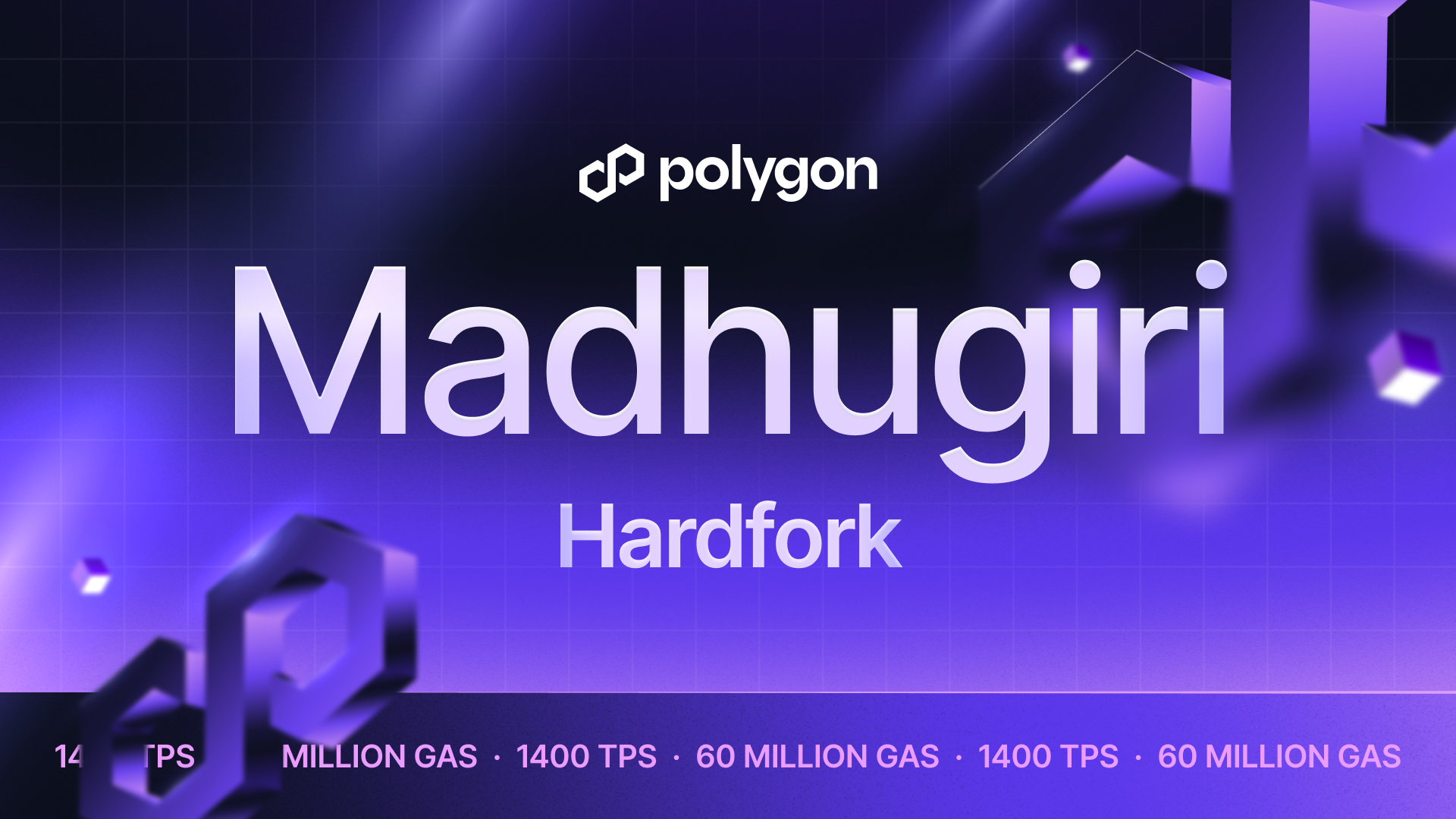Green Blockchain Summit: Recap & Path Forward

Polygon’s sustainability journey, which in the past few months included a commitment to becoming carbon negative, offsetting the network’s CO2 footprint and setting aside $20 million for climate projects, has reached a new milestone.
On July 13 Polygon hosted the Green Blockchain Summit, first in a series of a virtual forums for Web3 leaders to discuss solutions to the most urgent environmental problems facing the blockchain industry. The event convened founders, operators, investors, academics, and more across Web3 and beyond with discussions ranging from on-chain carbon credits and NFTs to climate narratives and lessons from other industries.
The full recording of the event is available online in all of its five-hour glory, but here are the highlights from each of the talks.
Keynote by Mihailo Bjelic, Polygon Co-Founder
Polygon’s own green story began earlier this year. While the team has always prided itself on having a Proof of Stake network that is very energy efficient, it was becoming clear that this was not enough, Mihailo said in his keynote.
“One of the most striking signs that the project has come of age was when we actually realized that the project has grown big enough for people to care about our carbon footprint. And I mean really care,” he said. “We took that realization very seriously.”
In April, Polygon announced that it will become carbon negative by the end of the year and committed $20 million to community projects. Since then, the protocol has retired $400,000 in carbon credits representing 104,794 tonnes of greenhouse gasses, or the entirety of the network’s CO2 debt since inception. The team has also hired a sustainability lead to spearhead the project.
https://youtu.be/iA2WdcDuILg
Read more: Polygon Reaches First Sustainability Milestone by Achieving Network Carbon Neutrality
Digitizing MRV: Ensuring Quality, Avoiding Fakery, and Creating Transparency
- Adrian Wons, Co-Founder and CEO, Senken
- Alexsandra Guerra, Co-founder and Director of Corporate Development, Nori
- Gregory Landua, Co-Founder and CEO, Regen Network
- Moderator: Charlie Moore, Head of Carbon & ESG Solutions, Chainlink
A key aspect of getting a handle on CO2 emissions is having accurate measurement, reporting, and verification, or MRV. Knowing emission sources and trends is indispensable to designing mitigation strategies, enhancing credibility of monitoring systems and taking other policy actions.
The panelists discussed how blockchain technology can support validation of carbon avoidance or removals, evolve existing MRV with real-time data, and deliver trust and transparency that this complex industry needs. The guests also talked about the importance of visualizing the impact of carbon credits to drive adoption of offset mechanisms.
https://youtu.be/YbolKy0Dq50
Read more: Accelerating the Energy Transition With Reneum on Polygon
The New Coordination Machine: On and Off-Chain Collaboration
- John Hoopes, Head of Ecosystem, Toucan Protocol
- Hugh Salway, Head of Markets, Gold Standard
- Dana Gibber, Co-founder and CEO, Flowcarbon
- Francisco Benedito, Chairman, Climatecoin | GreenClimateDAO
- Moderator: Pavel Alpeyev, Polygon
Voluntary carbon markets have been around for three decades now and a lot has been accomplished in this space. At the same time, the industry has come under criticism for lack of transparency, accessibility, low incentives, and fragmentation. A number of blockchain solutions have sprung up to address these problems, generating controversy in the process. This panel brings representatives from both sides to hash out the issues and discuss paths forward and areas of potential on-chain off-chain cooperation.
https://youtu.be/u2R0j_lJsL0
Read more: Going Green 101: Carbon Markets Demystified
Planting Trees, Saving Seas: Using NFTs and Blockchains Across Ecologies
- Jon Jie, Co-Founder and COO, MarinaChain
- Luis Adaime, Founder and CEO, MOSS
- Apurva Bhandari, Founder, SankalpTaru Foundation
- Kuan-Ning Tseng, Chief Sustainability Officer and Co-Founder, Fund The Planet
- Moderator: Kathleen Chu, Polygon
Trees planted on the Indian subcontinent that will remove millions of tonnes of carbon over their lifetimes or a swath of the Amazon rainforest protected from logging, these are not things one immediately associates with blockchains, and even less with NFTs. But Web3 technology is already bringing real, measurable positive change in the world. Warning, this panel will forever change how you think about the potential of NFTs and tokens.
https://youtu.be/0O6dS0TCJhI
Read more: How Polygon is Helping Reforest the Indian Subcontinent
Navigating the Crypto-Climate Narrative
- Anita Ramaswamy, Reporter, TechCrunch
- Andrew Chow, Correspondent, TIME
- Dionysus, Co-founder, KlimaDAO
- Daniel Hwang, Head of Protocols, stakefish
- Ben West, Cause Round Lead, Gitcoin
- Moderator: Joseph Pallant, Founder, Blockchain for Climate Foundation
Discussions around the climate impact of blockchains are polarizing, to say the least. While Bitcoin has long been on the receiving end of criticisms for excessive energy consumption, the breakout debut of the NFTs last year put a spotlight on Ethereum’s carbon footprint.
Contrary to popular belief, the NFTs are not boiling the oceans. In this panel, our guests explore interesting tools and projects challenging this narrative, discuss the quality of carbon offsets, tackle the problem of misinformation, and even touch on the meaning of democracy within the climate-crypto narrative.
https://youtu.be/xfJdqsBX7L8
Read More: Meet Projects Tackling Climate Change on Polygon
Enterprise Influence: Lessons on Sustainability
- Paul Brody, Global Blockchain Leader, EY
- Ying Qin, Global Insights - ESG & Sustainability, Citi
- Matthew Sigel - Head of Digital Assets Research, VanEck
- Moderator: Cristine Chen, Polygon
There is a sweet spot in a Venn diagram where traditional enterprises with experience in sustainability and Web3 projects offering new climate solutions overlap. But what does such a coalition actually look like? What lessons can Web3 innovators learn from enterprises about implementing ESG strategies and how can blockchains support their existing ones?
“There is a saying in business that what matters is the stuff that gets measured,” EY’s Paul Brody said on the panel. Brody believes blockchains will bring that measurability factor and transparency to carbon offsetting. Click below to hear the panelists discuss how blockchains can emerge as permissionless gateways for mobilizing capital to tackle climate problems.
https://youtu.be/H4acg8-3kbY
Read More: The Business Case for Blockchains Going Green
Lightning Talks: Building Solutions on Polygon
- Savinien Caracostea, Co-Founder, META foundation
META Foundation is a non-profit working to promote sustainable tourism through Metaverse. Their pilot project focuses on carbon-negative Bhutan and pioneers virtual travel through a collection of 1,080 NFTs, the sale of which will support educational and cleaning activities in the mountainous country.
https://youtu.be/RtTenHPSGv8
- Mark Patterson, Growth Lead, Realitems.io
Realitems.io, an early adopter of Polygon Nightfall privacy solution for enterprises, provides brands with a suite of blockchain services to assist them with their ESG strategy. The team is working with BASF, the world’s largest chemical producer, to digitize plastics to ensure reusability. Click below to learn about the potential for blockchains in creating a sustainable value chain.
https://youtu.be/MR1O3yL9m9I
- Subramanya Kusnur, Founder Chairman and CEO, AquaKraft Group Ventures
AquaKraft, a project focused on conservation of fresh water conservation, has built the world's first digital water bank and offset platform to account for and monetize water saving and expenditure. "Imagine a day without water. It's not very far," Kusnur warns in his talk.
https://youtu.be/p25LDWaBrQ8
- Nick Zwanevel, CTO and Co-founder, Coorest
Coorest is a decentralized ecosystem for realworld linked NFTs and carbon emission compensation, which creates tokens linked to real-world trees. Owners of NFTree collect $CCO2 tokens equivalent to the amount of CO2 sequestered by its real-life counterpart.
https://youtu.be/13NXCZBRXRA
The Multi-Chain Future: Building A Net-Positive Industry
- Marc Johnson, Environmental Solutions Architect, Filecoin Green/Protocol Labs
- Ikarus Janzen, ReFi Ambassador, Climate Collective (Celo)
- Dr. Christian Stoll, Co-founder, CCRI
- Austin Federa, Head of Communications, Solana
- Moderator: Stefan Renton, Sustainability Lead, Polygon
There has been a Cambrian explosion of Web3 climate projects. But much of that energy has been focused on improving carbon markets. Are there too many projects trying to solve the same problem? Should there be more communication and coordination at this stage? How does one use existing climate solutions as a springboard to pursue exponential returns Web3 is known for? These are just some of the questions tackled on this panel.
https://youtu.be/Kscx93g6tiE
Read more: What Blockchains Can Do For Environment
Despite its nascent state, the Web3 space is already very conscious of its environmental impact. Many projects have taken concrete steps toward neutralizing their carbon footprints and some are going beyond toward CO2 sequestration, improving the climate and protecting nature. As the industry moves forward on its sustainability journey, the Green Blockchain Summit guests have some advice: remove more carbon than you emit, go beyond offsets to funding more audacious climate tech, listen to and learn from people in other industries and don’t be an on-chain maxi.
Track our journey to becoming climate positive and tune into our blog for the latest news from the Polygon ecosystem.
Website | Twitter | Ecosystem Twitter | Developer Twitter | Studios Twitter | Telegram | Reddit | Discord | Instagram | Facebook | Lin



.png)



.jpg)
.jpg)
.png)

.png)





